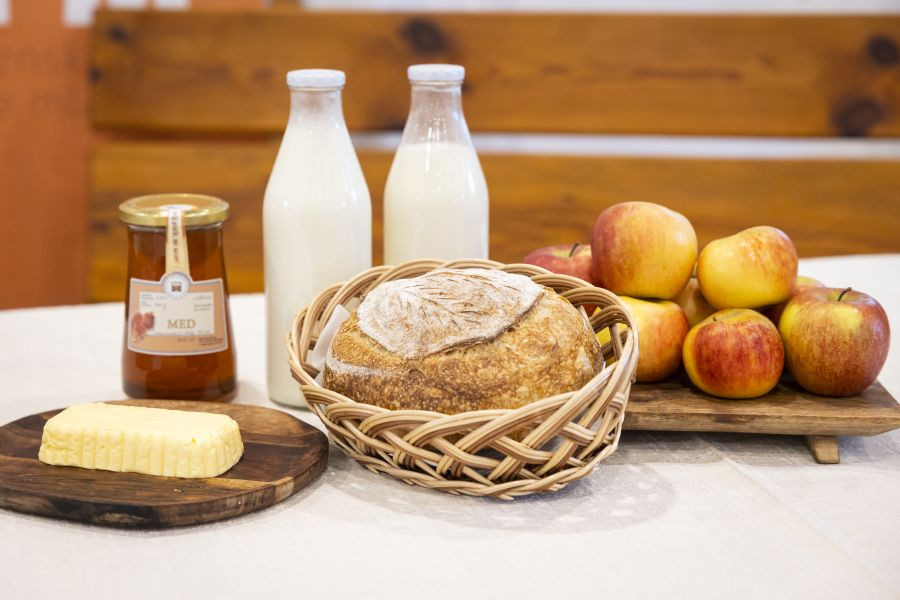Week of Slovenian Food to stress benefits of eating local
The main aim of the events is to support local food producers and processors, and raise awareness about the importance of food self-sufficiency, environmental conservation and preservation of rural areas.
The goal is also to teach the young about the way food is produced, encourage healthy eating habits and increase interest in farming, the Ministry of Agriculture, Forestry and Food said about the campaign.
"Local food has great value. It is fresh, rich in nutrients and carries the story of the people and the landscapes where it is grown," Minister Mateja Čalušić said, stressing that respect and appreciation for local food is the responsibility of the whole of society.
Heeding a call from a number of relevant organisations, including the Beekeepers' Association, the government decided to extend the Day of Slovenian Food, observed since 2012, and introduce the Week of Slovenian Food last December, and so this year's week-long series of events dedicated to food awareness will be held for the first time ever.
The start of the Week of Slovenian Food will coincide with St Martin's Day, when grape officially becomes wine.
But the highlight of the week-long campaign will not be wine but Slovenian dishes, including the traditional breakfast whose staples include bread, butter, honey, milk and locally grown fruit.
Kindergartens and schools across the country will provide the breakfast on Friday in what is a tradition that started in 2011 and aims to instil the habits of eating local food and eating breakfast in children.
In cooperation with the NLB bank, the Beekeepers' Association will give out honey with a protected geographical indication and locally grown apples at ten sites located outside NLB offices.
Meanwhile, more than 30 municipalities have joined forces in a project called Pan-Slovenian Market to promote local food growers.
In addition to events encouraging people to eat local food, there will be efforts to promote traditional Slovenian dishes, as public institutions, pubs and restaurants have been urged to include those in their menus this week using locally grown produce.
Slovenia is nearly completely self-sufficient in egg production and its self-sufficiency is quite solid in meat production (83%), but the situation is less rosy when it comes to fruit and vegetables.
The self-sufficiency rate for fruit was lowest among agricultural crop products last year - at 16%. Vegetable self-sufficiency was at 33%, while the highest rate was for cereals (80%).
Source: STA


